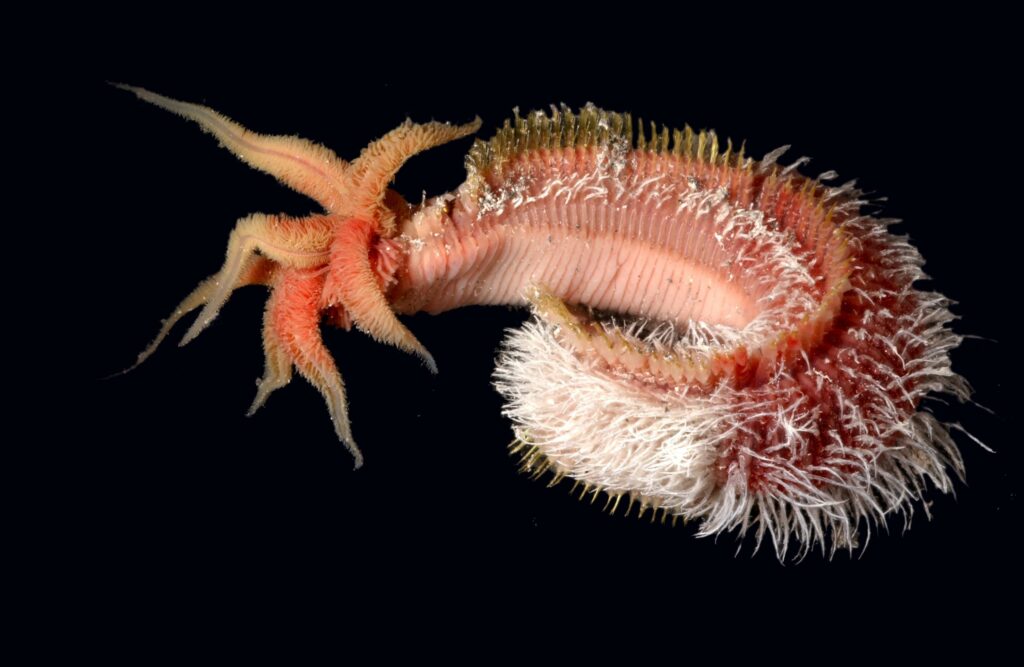We are interested in the unique peptides/miniproteins produced by marine worms (phylum Annelida, class Polychaeta), which since hundreds of millions of years have massively colonised extreme environments that are lethal to most organisms:
– The hot, anoxic, sulphide-rich hydrothermal vents of the deep ocean ridges of the Pacific and Atlantic Oceans (see the video below, showing the Pompei worm, one of our models emblematic of this habitat)
– The cold waters of Antarctica and sub-Antarctica
– The black, anoxic, sulphide-rich coastal sediments.

Alvinella Pompejana, or Pompeii worm, photographed aboard the Ifremer ship ‘Atalante’ during the PHARE oceanographic campaign on the East Pacific Rise. It is a species found only near hydrothermal vents (credits Ifremer).
We have access to deep sea and polar missions that benefit from the structures of the French oceanographic fleet (such as the Nautile submarine, below), and/or have biological samples in stock thanks to a network of collaborations with the Biological Station of Roscoff (Didier Jollivet), the Station of Banyuls (Stéphane Hourdez), the IFREMER Brest (Marie-Anne Cambon) and the French Polar Institute (Thomas Saucede, David Renault).

Nautile submarine from the French oceanographic fleet (Ifremer)
From an evolutionary point of view, annelids have evolved, presumably from an ancestral flatworm, with which they share the ability to regenerate. They were the first organisms to develop a closed circulatory system with blood rich in haemoglobin (close to human haemoglobin) and immune cells that can be easily harvested or even kept in primary culture for a few days during missions. This makes them good models for comparative immunology studies.
Their antibacterial immunity (to kill bacterial pathogens and control vital bacterial symbiosis) is based on the production of unique antimicrobial peptides (AMPs), which are mainly active against Gram-negative bacteria, a group of bacteria, predominant in these marine extreme habitats, that includes most of the multi-drug resistant (MDR) bacterial pathogens that pose problems to human health (WHO list).
Did you know that research into the depths of the sea could help in discovering new treatments for human surface diseases? Species from the deep sea possess an immune system different from ours. Aurélie Tasiemski explains the significance of fundamental research on these “little creatures” that fascinate her (in french).